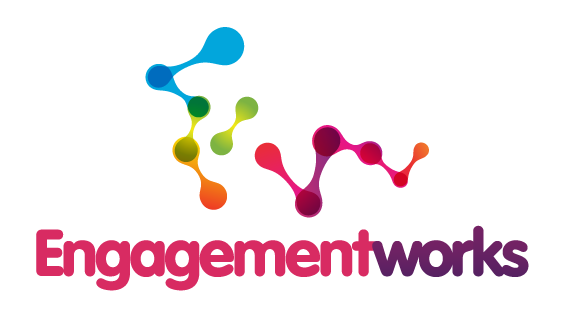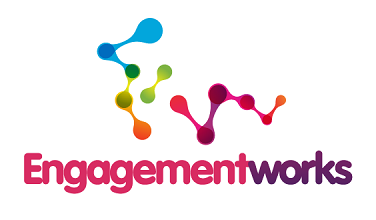A major piece of legislation that shapes the roles and functions of local government councils and agencies in New Zealand is the Local Government Act 2002. A bill to amend this Act is currently passing through Parliament and is expected to be passed into law by the end of the first quarter of 2014.
Included in the proposed amendments are changes to Part 6 of the Act, notably a requirement for councils to have a significance AND engagement policy, rather than just the significance policy that the current Act requires. Changes are also proposed to the Act’s special consultative procedure provisions.
These changes will require a different approach to how councils engage with their communities – changes that should be welcomed by communities who want to be more involved in council decision-making processes and for there to be greater transparency for council decision-making generally.
Councils will also need to think hard about how they assess “significance”, as required by the Act and how they apply that policy. A particular issue is how councils determine whether an issue is of “high” significance or not and will need to focus on impact on communities, rather than just on economic impact which appears to be the prevailing basis for council decisions.
Environmental, social and cultural well-beings must also form part of a significance determination which should not be overshadowed by financial considerations. The Office of the Auditor General has been concerned about councils’ approach to determining significance for some years and how consistently significance policies have been applied.
Engagement is often something councils do because they have to, not because they want to. Changes to the Act regarding engagement require councils to work more closely with their communities. We think this is a good thing, not only for New Zealand’s communities but also for councils themselves. More effective and ongoing engagement will greatly increase a council’s understanding of a community’s issues, needs and priorities. It will also grow a council’s trust and respect and other elements that comprise its “social capital”.
Yes, more engagement will probably increase the level of investment a council has to make to ensure it is done well. But that investment will pay back strongly in other areas, such as a reduction in challenges to council decisions, particularly legal challenges, and a greater ability for council projects to be delivered to time and within budget.
Engagementworks understands what the changes to Part 6 of the Local Government Act mean for councils and local government agencies. To help councils and avoid the inevitable “reinventing of the wheel” that often occurs with change processes, we have built a resource kit to make it easy for councils to meet the new statutory requirements. The kit includes process flowcharts and templates for building a significance and engagement policy through to how to apply that policy on a day-to-day basis.
We’ve also built a training workshop to help guide councils through the changes a revised Act will require for engagement practice.
Our resources have been peer reviewed and are available now, based on the current Bill, assuming it will pass through Parliament unchanged. However should changes occur, then the resource will be updated to incorporate these amendments, at no cost.
The resource kit can be obtained by contacting us at [email protected] or by clicking this link.
It will be available as a printed copy and also on CD. It will also be available on memory stick or in Dropbox™ where it will be maintained on an ongoing basis – the latest version will always be the one available. Subscribers who do not have Dropbox™ will be sent notices of updates as these occur.
In addition to supplying the resource kit, Engagementworks also offers a one-day “how to” workshop to help councils understand and implement the new statutory requirements relating to significance and engagement. The one-day workshop can be adapted to suit specific council requirements.
Pricing:
Included in the proposed amendments are changes to Part 6 of the Act, notably a requirement for councils to have a significance AND engagement policy, rather than just the significance policy that the current Act requires. Changes are also proposed to the Act’s special consultative procedure provisions.
These changes will require a different approach to how councils engage with their communities – changes that should be welcomed by communities who want to be more involved in council decision-making processes and for there to be greater transparency for council decision-making generally.
Councils will also need to think hard about how they assess “significance”, as required by the Act and how they apply that policy. A particular issue is how councils determine whether an issue is of “high” significance or not and will need to focus on impact on communities, rather than just on economic impact which appears to be the prevailing basis for council decisions.
Environmental, social and cultural well-beings must also form part of a significance determination which should not be overshadowed by financial considerations. The Office of the Auditor General has been concerned about councils’ approach to determining significance for some years and how consistently significance policies have been applied.
Engagement is often something councils do because they have to, not because they want to. Changes to the Act regarding engagement require councils to work more closely with their communities. We think this is a good thing, not only for New Zealand’s communities but also for councils themselves. More effective and ongoing engagement will greatly increase a council’s understanding of a community’s issues, needs and priorities. It will also grow a council’s trust and respect and other elements that comprise its “social capital”.
Yes, more engagement will probably increase the level of investment a council has to make to ensure it is done well. But that investment will pay back strongly in other areas, such as a reduction in challenges to council decisions, particularly legal challenges, and a greater ability for council projects to be delivered to time and within budget.
Engagementworks understands what the changes to Part 6 of the Local Government Act mean for councils and local government agencies. To help councils and avoid the inevitable “reinventing of the wheel” that often occurs with change processes, we have built a resource kit to make it easy for councils to meet the new statutory requirements. The kit includes process flowcharts and templates for building a significance and engagement policy through to how to apply that policy on a day-to-day basis.
We’ve also built a training workshop to help guide councils through the changes a revised Act will require for engagement practice.
Our resources have been peer reviewed and are available now, based on the current Bill, assuming it will pass through Parliament unchanged. However should changes occur, then the resource will be updated to incorporate these amendments, at no cost.
The resource kit can be obtained by contacting us at [email protected] or by clicking this link.
It will be available as a printed copy and also on CD. It will also be available on memory stick or in Dropbox™ where it will be maintained on an ongoing basis – the latest version will always be the one available. Subscribers who do not have Dropbox™ will be sent notices of updates as these occur.
In addition to supplying the resource kit, Engagementworks also offers a one-day “how to” workshop to help councils understand and implement the new statutory requirements relating to significance and engagement. The one-day workshop can be adapted to suit specific council requirements.
Pricing:
- The kit on its own is available for purchase for $620 plus GST.
- The one-day, in-house “how to” workshop, including the resource kit, is priced at $7,500 plus GST for up to 20 people.



 RSS Feed
RSS Feed
